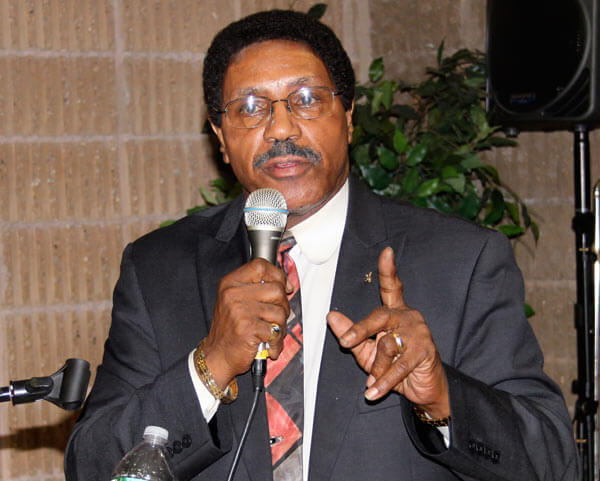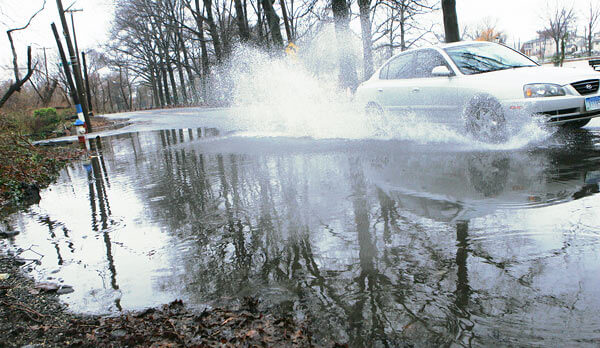By Rich Bockmann
State Assemblyman William Scarborough (D-St. Albans) last week made an appeal to the southeast Queens community to pressure City Hall and Albany to finally do something about the area’s flooding problems.
With its naturally high water table, southeast Queens is constantly fighting back against groundwater that seeps into basements and causes large puddles with even the slightest rainfall. The water table had been kept at bay by the Jamaica Water Co., which pumped drinking water from wells across the area until the late 1990s, when the city bought the company and capped the wells.
But there is no comprehensive plan to address the problem until 2018, Scarborough said, when the city Department of Environmental Protection plans to reopen the capped wells to provide drinking water as the department makes repairs to the leaking Delaware Aqueduct, which brings water to the city from the Catskills.
“So pumping is not needed when our community is drowning in water and people are having their homes and their businesses and their institutions ruined through no fault of their own, but when they need the water, it’s needed, and I think that’s an outrage,” Scarborough said at Community Board 12’s Jan. 16 meeting. “It’s an absolute outrage.”
A spokesman for the DEP said the department was assessing the operational capacity of the wells.
The Jamaica Water Co. used to pump about 60 million gallons of water from 69 wells each day, Scarborough said, but the quality of the H2O itself caused an uproar in the community.
“By the end of their tenure, people were demanding they get out of there. I mean I can remember hearings where people would bring jars of black water that came out of their tap,” Scarborough said.
At the bequest of residents, the city purchased the water company’s wells in 1996 and capped them, switching southeast Queens over to the city’s water system. Scarborough said the DEP acknowledged back in 2007 that the water had risen 35 feet since the wells had been capped and admitted flooding would be a major problem in the area.
The city has since developed several pilot programs to address the flooding — including installing millions of dollars’ worth of sewer infrastructure — but no long-term solution exists to address the groundwater problem until the end of the decade.
“The answer always comes back to some variation of we don’t want to spend the money or we don’t have the money,” Scarborough said. “And we as a community should not have to accept that.”
The assemblyman asked the community board to consider a resolution saying the state and city budgets should not be passed until there is a comprehensive solution for flooding in southeast Queens. The state’s budget deadline is March 31 and the city’s is June 30.
“Basically they’re saying to us, ‘You can sit in stew in this flooding for seven years, but when we need the water, we’ll put the well back on,’” he said.
Reach reporter Rich Bockmann by e-mail at rbockmann@cnglocal.com or by phone at 718-260-4574.



































